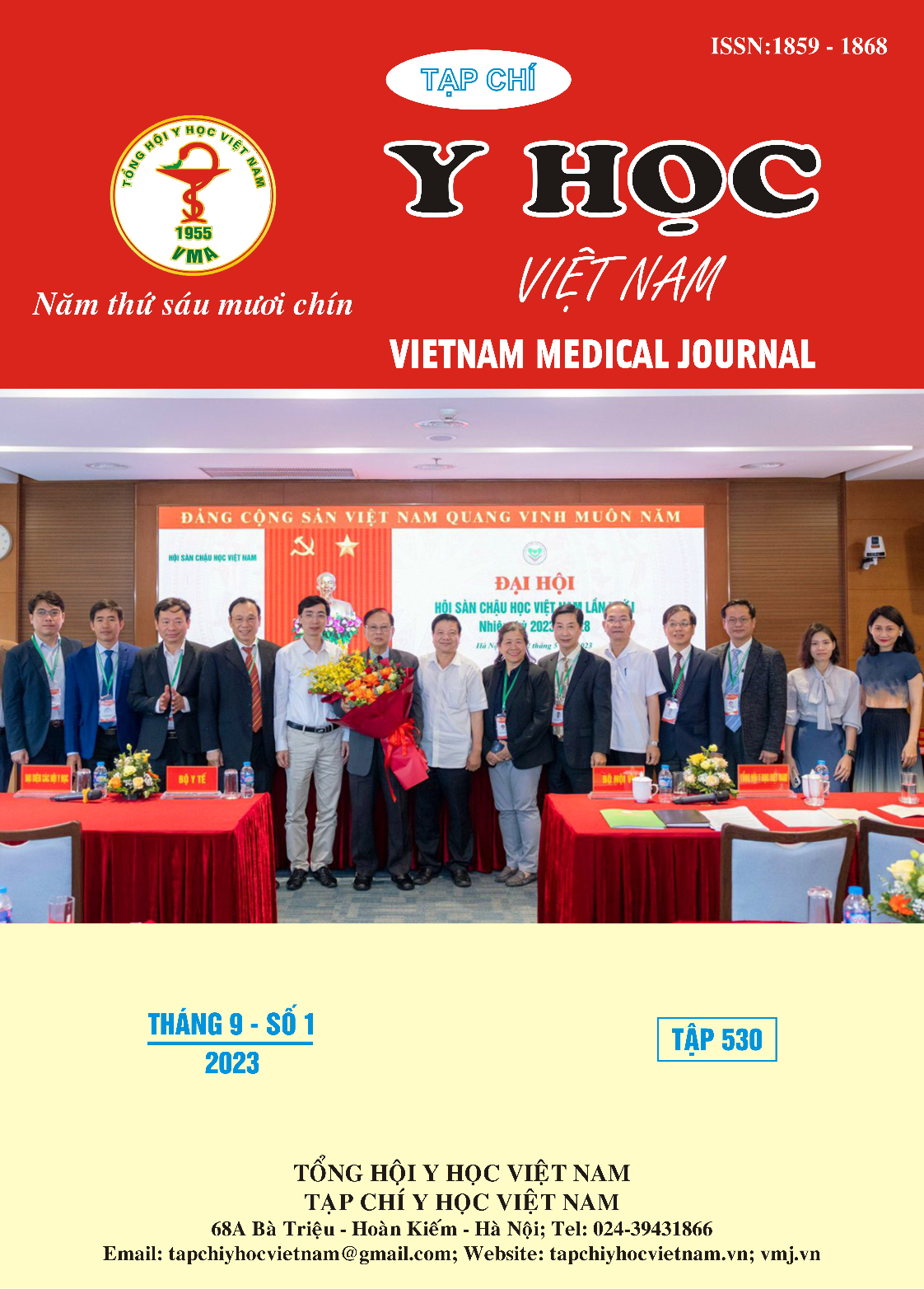THE PROTOCOL FOR ANALYZING THE POTENCY OF POST-EXPANDED HUMAN NK CELLS IN KILLING CANCER CELL LINE IN VITRO
Main Article Content
Abstract
Objective: This study aims to establish a procedure to evaluate the cytotoxicity of NK cells after being activated and proliferated in vitro based on the evaluation tool of flow cytometry system. Subjects and research methods: We analyzed two sources of NK cells: (1) Peripheral blood NK cells isolated from a donor (the patient was diagnosed with prostate cancer at the central K hospital - Tan Trieu campus) at the time before proliferative culture (first day - D0; NK-D0) and (2) NK cells at the time of post-proliferative culture with the NK cell activation culture kit (KBM kit) in 14 days (Day 14 - D14; NK-D14); these two sources of NK cells were co-cultured with prostate cancer cells (PC3) in a ratio of 5:1 (NK:PC3) within 6 hours to evaluate the potency of two NK cells. The percentage of survived PC3 cells that were not lysed by NK cells was assessed by flow cytometry. Results: Based on the established procedure, we found that proliferative-cultured NK cells exhibited a stronger ability to kill cancer cell line (PC3) than fresh NK cells isolated from the patient. Conclusion: We have successfully established a procedure to evaluate the cancer cell killing ability of NK cells after proliferation and activation. This procedure is a premise for clinical application studies to evaluate the potency of immune cells after culture.
Article Details
Keywords
Natural killer (NK) cells, Prostate cancer cell line (PC3), Culture for proliferation and activation, flow cytometry.
References
2. S. Paul, G. Lal. The Molecular Mechanism of Natural Killer Cells Function and Its Importance in Cancer Immunotherapy. Front Immunol. 2017 Sep 13;8:1124. doi: 10.3389/fimmu.2017.01124. PMID: 28955340; PMCID: PMC5601256.
3. C.Y. Su, G.C. Huang, Y.C. Chang, Y.J. Chen, H.W. Fang. Analyzing the Expression of Biomarkers in Prostate Cancer Cell Lines. In Vivo. 2021 May-Jun;35(3):1545-1548. doi: 10.21873/invivo.12408.
4. C. Pasero, G. Gravis, M. Guerin, S. Granjeaud, J. Thomassin-Piana, P. Rocchi, M. Paciencia-Gros, F. Poizat, M. Bentobji, F. Azario-Cheillan, J. Walz, N. Salem, S. Brunelle, A. Moretta, D. Olive. Inherent and Tumor-Driven Immune Tolerance in the Prostate Microenvironment Impairs Natural Killer Cell Antitumor Activity. Cancer Res. 2016 Apr 15; 76(8):2153-65. doi: 10.1158/0008-5472.CAN-15-1965.
5. F. Wang, X. Dong, J. Wang, F. Yang, D. Liu, J. Ma, S. Liu, D. Chang, N. Xing. Allogeneic Expanded Human Peripheral NK Cells Control Prostate Cancer Growth in a Preclinical Mouse Model of Castration-Resistant Prostate Cancer. J Immunol Res. 2022 Apr 11;2022:1786395. doi: 10.1155/2022/1786395.
6. S.P. Hood, G.A. Foulds, H. Imrie, S. Reeder, S.E.B. McArdle, M. Khan, A.G. Pockley. Phenotype and Function of Activated Natural Killer Cells From Patients With Prostate Cancer: Patient-Dependent Responses to Priming and IL-2 Activation. Front Immunol. 2019 Jan 25;9:3169. doi: 10.3389/fimmu.2018.03169.
7. T. Mosmann, 1983. Rapid colorimetric assay for cellular growth and survival: Application to proliferation and cytotoxicity assays. Journal of Immunological Methods. 65: 55-63.


